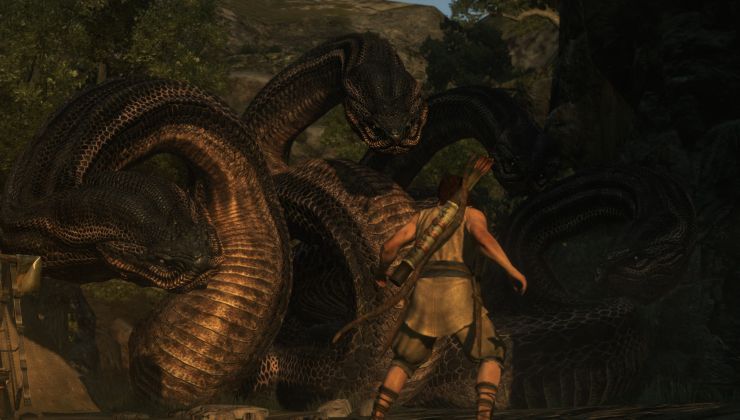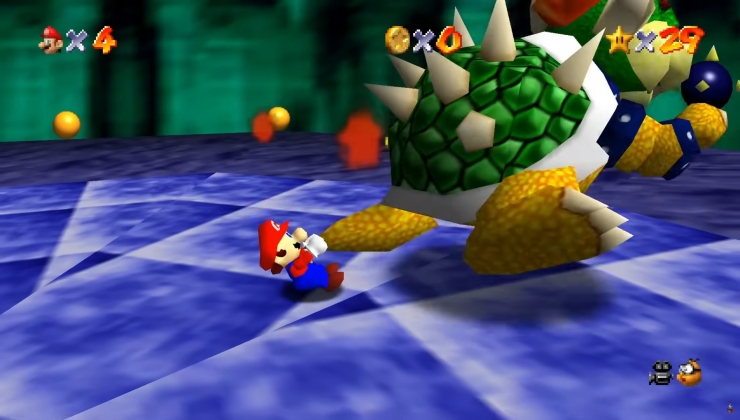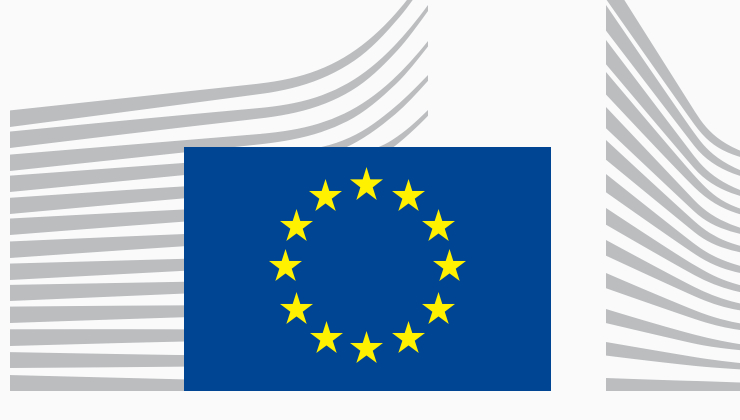Enjoy traditional tabletop games and RPGs? SmiteWorks have release Fantasy Grounds Unity into Early Access recently along with Linux support.
A much expanded and improved version of Fantasy Grounds, which originally released in 2004 and does not support Linux. This new version does, built (as the name might suggest) with the Unity game engine giving them a lot more tools to work with.
Need to know what it is, not heard of it? "Fantasy Grounds is a dynamic system for playing a host of different roleplaying games online. It is used by hundreds of thousands of gamers worldwide to connect and play popular games such as Dungeons and Dragons, Pathfinder, Savage Worlds, Call of Cthulhu, and so many more. This type of program is commonly referred to as a ‘virtual tabletop’, or VTT, due to their ability to emulate various parts of an RPG session in digital form."

Direct Link
Turns out they actually had a Kickstarter campaign to fund it, back in 2019 this raised $509,343. Linux as a supported platform was part of that, so it's great to see them deliver. They even took on new developers recently, as noted in a Kickstarter update who helped get Linux sorted.
Just some of what's new in it includes:
- 64-bit support to allow for more content (quality and quantity)
- Native support for Mac, Linux and Windows PC
- Network lobby for easy hosting and joining of games (no port forwarding required)
- Tile based map building with built-in support for dynamic Line of Sight
- Enhanced Drawing Tools
- Additional Dice Macros support
- A new FGU only skin
- Dynamic Line of Sight with enhanced toggle blockers for walls, doors, terrain and secret areas.
- Paint with images, such as walls
- Animated image effects
- Locally stored Asset Library for use in campaigns
- Backward compatibility with all existing campaigns and DLC from FGC
Sharing DLC between the original and this is a nice touch, as long as you use the same account for both versions it will give you any previous DLC you own. Considering there's absolutely tons of DLC, that was probably the only sane option. There's 1,658 of them. It sounds ridiculous but a lot of that is officially licensed content from D&D and various others. They also have upgrade options to get a discount if you own the older app.
You can find it in Early Access on Steam.
They have been working on a new version for quite some long time already, because their engine just didn't support many things they wanted to add, but they were constantly having problems. Glad they sorted it out with the crowdfunding and Unity.
Hoping I can start using it, especially since I got suckered into the sale. But also I want to use it for GURPS, which there is an unofficial plugin for. My tastes in RPGs have been spoiled by the wonderful people at Steve Jackson Games, though I occasionally wonder if I keep them in business... :P
That said it is a very good table top and the developers plan on adding new features on top of the new engine. I am looking forward to it! :)
So what does it do? Is it doing kind of the same stuff as roll20, or different, or just more? Does not being browser-based make it a significantly different experience? Is it more stable?
- One-time purchase of $50, self-hosted (and optional hosting partners for a fee, if you want it hassle-free)
- Players connect through browsers (no license/purchase needed for them. The licensing for FGU is ridiculous...).
- Hosting app available for Windows, Mac and Linux (and straight nodejs for self-hosting).
- Currently has 60 game systems and 423 add-on modules for added functionality (pretty darn good for something that came out of beta in may of this year).
It's all built on web technology, making it similar to Roll20 but much much more performant. Probably beats FGU too!
One downside is the current lack of officially licensed content, but there are third-party importers available for FG, Roll20 and DDB so you'll be good if you have any content on those platforms.
Quoting: FoHSee, this is a part I don't get, either for this Foundry VTT or Fantasy Grounds Unity. What does it mean for something like this to "have" a game system? I own the rules to the games I'm playing, and it's like, as long as it makes dice-rolling possible, I can decide for myself what dice I'm gonna roll. So what does having the game system do, exactly?Currently has 60 game systems
Ed. to add: Sorry, never mind. Went to the site, watched their 12 minute video, I sort of get the idea. Oddly, I feel like it's too good for my taste. Pulls in too much. Too far from the experience of playing a tabletop game, moving too close to playing a computer RPG that happens to have a game master behind it somewhere.
Last edited by Purple Library Guy on 11 Sep 2020 at 3:18 am UTC
Quoting: Purple Library GuyI've never tried this. My friends and I have been using Roll20 lately, often with Zoom or Jitsi on the side so we can see each other's faces bigger than tiny, and also because the conferencing part has been pretty glitchy.It is pretty much equivalent, but with slightly different features and interfaces - and most importantly, payment models. I'll talk about FG2 that was what I played a lot, I expect it to have improved a lot... but I actually had a long-lasting group that used both programs (regular DM liked FG more, other people DMed once in a while and liked roll20 better) so we compared them a lot. xD
So what does it do? Is it doing kind of the same stuff as roll20, or different, or just more? Does not being browser-based make it a significantly different experience? Is it more stable?
Back in the days, roll20 was a lot more focused on being customizable while Fantasy Grounds was more about being "ready to play". Even without the subscriptions that allowed scripts, roll20 had more options with macros, and it was a lot easier to get started (but you had to do everything manually); but FG had a lot of official content and everything was pretty and pre-configured (which was great until you wanted to house rule something). Roll20 allowed you to search a library of public images, while FG had a smaller but more curated collection. They each improved in each other's area since then, though. In general, FG tries hard to be very polished and professional, and it makes a difference.
I think being in a browser makes roll20 easier to use if you are constantly alt-tabbing to different programs, webpages and stuff (as I often do while GMing...). I generally like fullscreen better, but RPGs for me required too much information for a single screen (even with a second monitor to open all the sheets and notes and chat and stff I often needed outside sources, pdfs, check the chat program, etc).
Regarding payments: roll20 is free for everyone, but the paid features are subscription only and it gets expensive in the long term. Fantasy Grounds is paid upfront, and requires either everyone to buy a copy (impractical - groups change, new people join, etc) or the GM to buy a very expensive ultimate license (still impractical - no one else can ever GM without going back to the purchase problem). In this aspect, roll20 lowers the barrier a lot for people to play, specially for simpler games where you don't need to get lost in macros and maps and stuff.
Quoting: 14Glad to see Steam has a demo button. I want to try it out. Only problem is, my friends and I have a fairly stable schedule of playing board games in person, so playing online isn't a large desire for us. I think I would need to add a different circle of players to get some use out of it.I was always an "in person" man myself, but with Covid we went virtual . . . we'd probably have gone to in person, at a park maybe, for the summer except one of our GMs is married to a doctor and so is being especially careful.
Quoting: Purple Library GuyWe were on a break for about two months or so where we played regular PC/PS4 games online on our schedule instead of anything in person. We could have used it then. But now we play tabletop in person again.Quoting: 14Glad to see Steam has a demo button. I want to try it out. Only problem is, my friends and I have a fairly stable schedule of playing board games in person, so playing online isn't a large desire for us. I think I would need to add a different circle of players to get some use out of it.I was always an "in person" man myself, but with Covid we went virtual . . . we'd probably have gone to in person, at a park maybe, for the summer except one of our GMs is married to a doctor and so is being especially careful.
Quoting: Purple Library GuyYeah, we just barely had one session of a new game we started, as we got to a sort of decent place to stop and let someone else GM for mine. Then with everyone being paranoid and one of my friends working at the hospital, we have held off on starting up again.Quoting: 14Glad to see Steam has a demo button. I want to try it out. Only problem is, my friends and I have a fairly stable schedule of playing board games in person, so playing online isn't a large desire for us. I think I would need to add a different circle of players to get some use out of it.I was always an "in person" man myself, but with Covid we went virtual . . . we'd probably have gone to in person, at a park maybe, for the summer except one of our GMs is married to a doctor and so is being especially careful.
Shame too, because my Archeologist / Scientist / Engineer character is a hoot to play! Playing GRUPS Space stuff. Always entertaining when a GM asks in the middle of trying to solve an issue "Do you have archeology?" and I say "I do!" and another player says "What?? Of course YOU do!"
Gotta come prepared!
Quoting: slaapliedjeI love those SF brainy characters; so versatile. I'm actually right now running a sort of fantasy equivalent. An Islamic scholar, Muslim Renaissance Man type, Abu Hamid Ahmed ibn Mohammed al-Saghani, with a full eidetic memory. Archaeology is one of his things, too, which is good since we're currently exploring lost elven ruins. He's also an alchemist.Quoting: Purple Library GuyYeah, we just barely had one session of a new game we started, as we got to a sort of decent place to stop and let someone else GM for mine. Then with everyone being paranoid and one of my friends working at the hospital, we have held off on starting up again.Quoting: 14Glad to see Steam has a demo button. I want to try it out. Only problem is, my friends and I have a fairly stable schedule of playing board games in person, so playing online isn't a large desire for us. I think I would need to add a different circle of players to get some use out of it.I was always an "in person" man myself, but with Covid we went virtual . . . we'd probably have gone to in person, at a park maybe, for the summer except one of our GMs is married to a doctor and so is being especially careful.
Shame too, because my Archeologist / Scientist / Engineer character is a hoot to play! Playing GRUPS Space stuff. Always entertaining when a GM asks in the middle of trying to solve an issue "Do you have archeology?" and I say "I do!" and another player says "What?? Of course YOU do!"
Gotta come prepared!
Quoting: Purple Library GuyNice! Yeah I never understood players who play the single task characters. My characters may not be experts at any particular thing, but they're going to be far more useful outside of a fight.Quoting: slaapliedjeI love those SF brainy characters; so versatile. I'm actually right now running a sort of fantasy equivalent. An Islamic scholar, Muslim Renaissance Man type, Abu Hamid Ahmed ibn Mohammed al-Saghani, with a full eidetic memory. Archaeology is one of his things, too, which is good since we're currently exploring lost elven ruins. He's also an alchemist.Quoting: Purple Library GuyYeah, we just barely had one session of a new game we started, as we got to a sort of decent place to stop and let someone else GM for mine. Then with everyone being paranoid and one of my friends working at the hospital, we have held off on starting up again.Quoting: 14Glad to see Steam has a demo button. I want to try it out. Only problem is, my friends and I have a fairly stable schedule of playing board games in person, so playing online isn't a large desire for us. I think I would need to add a different circle of players to get some use out of it.I was always an "in person" man myself, but with Covid we went virtual . . . we'd probably have gone to in person, at a park maybe, for the summer except one of our GMs is married to a doctor and so is being especially careful.
Shame too, because my Archeologist / Scientist / Engineer character is a hoot to play! Playing GRUPS Space stuff. Always entertaining when a GM asks in the middle of trying to solve an issue "Do you have archeology?" and I say "I do!" and another player says "What?? Of course YOU do!"
Gotta come prepared!








 How to setup OpenMW for modern Morrowind on Linux / SteamOS and Steam Deck
How to setup OpenMW for modern Morrowind on Linux / SteamOS and Steam Deck How to install Hollow Knight: Silksong mods on Linux, SteamOS and Steam Deck
How to install Hollow Knight: Silksong mods on Linux, SteamOS and Steam Deck